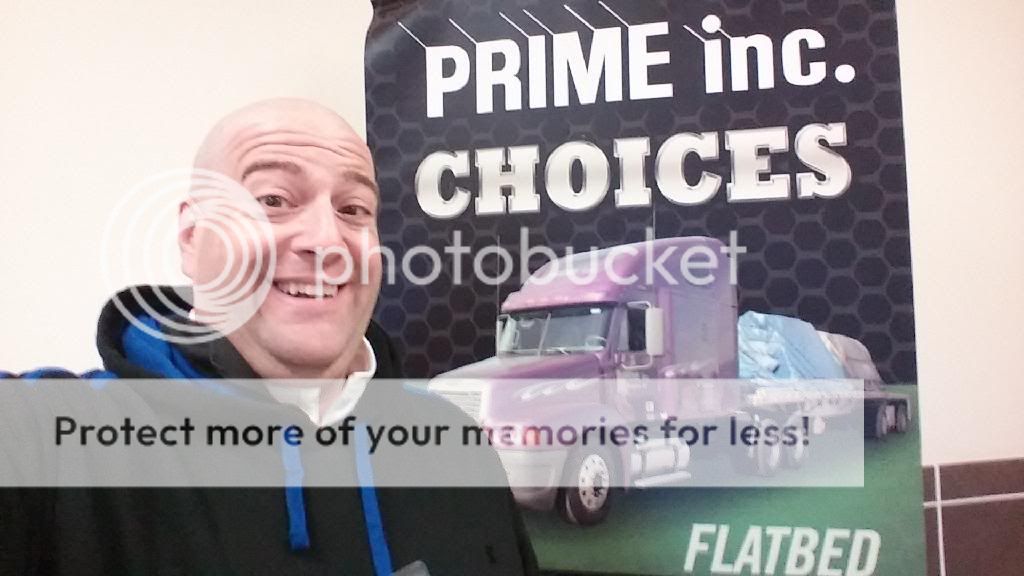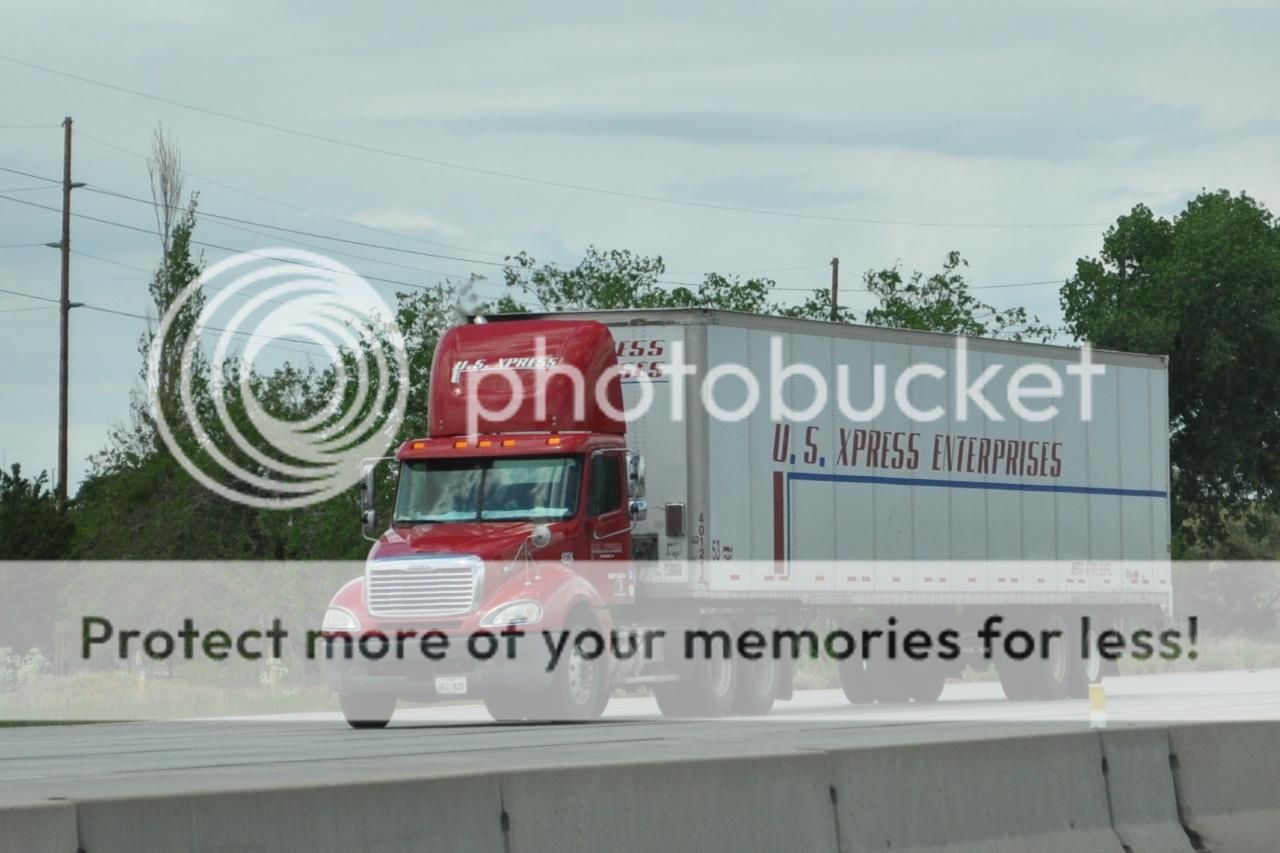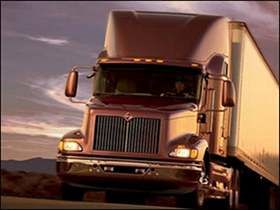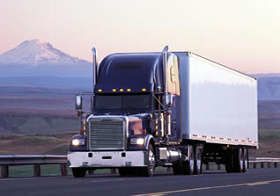Schneider Bulk New Hire Experience
Topic 998 | Page 1

Wow, great post TTM...I think most noobs are intimidated by the thought of tankers for the very reason you mentioned..the Surge..but I have to say, I have enjoyed your posts and look forward to you keeping us updated..what kind of equipment are you driving? You can PM me pics if you want and I can post them or send you the links and you can post them if you are unable to..but we want some pics of your rig..
That is a great list of questions, thanks for sharing
as far as communicating by email so as to have it in writing, that is a great idea. Now I know why a recruiter from CRST never responded to my emails but was very keen on calling me several times a day.

Yeah quite a few recruiters told me, "We are not allowed to communicate by email." Which in 2013 is like the weirdest thing to hear someone say... lol.
I'll get pics at some point. I am in a 2008 Freightliner.
Funny story though. I got a 2008 Freightliner with 600,000 miles on it, and 200,000 on the engine (rebuilt engine I guess?). Not one issue with it so far except that tire. Two other guys in my training class got a 2011 and a 2012. It was just the luck of the draw, those were the trucks available at our respective Operating Centers. I was jealous at first. But...
The 2011 has overheated, had alternator issue, had some issue with 9th and 10th not having enough power, and a few other small things. The 2012 is having bunch of electrical issues, lots of sensors being tripped, lights not working, etc.
I am now very comfortable in my truck. My dispatcher said in a few months he'll give me a newer model, but I think I won't take it lol.
That's another lesson I learned. Don't be sold by recruiters telling you we have BRAND NEW TRUCKS. The trucking companies are businesses. The trucks are their equipment that make them money. They will take care of their trucks, at least most of the big companies. Whether they lease them for 3-4 years, or buy them and use them for 5-6 years is just a business decision.
Equipment can have problems whether it is new or old. My truck doesn't have as many fancy buttons as a 2012, but it got me to my destinations safely and quickly.
Dispatcher:
Dispatcher, Fleet Manager, Driver Manager
The primary person a driver communicates with at his/her company. A dispatcher can play many roles, depending on the company's structure. Dispatchers may assign freight, file requests for home time, relay messages between the driver and management, inform customer service of any delays, change appointment times, and report information to the load planners.HOS:
Hours Of Service
HOS refers to the logbook hours of service regulations.
That is a great list of questions, thanks for sharing
as far as communicating by email so as to have it in writing, that is a great idea. Now I know why a recruiter from CRST never responded to my emails but was very keen on calling me several times a day.
this is what I ran into with CR England. The recruiter emailed me the list of their details, and I replied back with a much shorter list of questions and it's been exactly 5 weeks since I sent the email and still no reply.
Jerry, stay after them. Keep calling and emailing. Whatever it takes. Company recruiters are notoriously hard to get in touch with. You have to be really persistent about it.
And thanks for that list ThinksTooMuch! That's fantastic!

TTM, thanks for the list, I am considering a career (more like on the verge) in the trucking industry and I never would of thought to ask questions like that. I generally ask questions during a "normal" job interview, but nothing that detailed. I am going to print that out so when I am in school and the recruiters come to give us their speeches I will be prepared!
It never ceases to amaze me that the people on this site would look out for each other this much! It is so refreshing to belong to such a "community" ! This solidifies my decision to become a trucker... After all these years in jobs I couldnt stand to be apart of and dealing with all the drama and all the backstabbing that goes on!

Going to be honest, if I was a recruiter I would actually be intimidated if I ever got an email like that. I would probably think that someone within the company I work for is quizzing me on how much I know, kind of like a secret shop for restaurants. Haha

Thinks, congrsts on making it through training and best of luck on the road.
That are some great questions. I'd be interested in seeing the answerss Schneider gave you for those questions.
HOS:
Hours Of Service
HOS refers to the logbook hours of service regulations.
I think the reason is plausible deniability..if you get it in writing, then you can hold them to it...without in in writing, no matter what they promised you or told you, it's their word against yours..one of the things I liked about Prime was that they invited me to orientation, and sent me an email listing all of the pertinent things I was wondering about..here is a screenshot..
· We pay your Greyhound bus ticket to Springfield, MO.
· 4 days of Orientation Tuesday thru Friday (Paid Hotel and 3 meals per day during Orientation)
· Over the road instruction with a Prime Instructor for 10,000 miles (approximately 2-3 weeks) and Prime advances $200 weekly
· Over the road training with a Prime Trainer for 30,000 miles and $600 (or 12cpm whichever is greater). $25 is deducted weekly for advances if used.
Starting Pay
· Reefer
o After training $.36cpm+$.05cpm for lightweight tractor= $.41cpm
o You may add another $.05cpm for NE Regional
· Flatbed
o After training start at $.38cpm
· Tanker
o After training starts at $.43cpm
At orientation you will need:
· $100 non-refundable deposit
o If getting your permit while at Prime you will need an additional $50 and be ready to take the permit test the day after you arrive. This is self-study.
· A state issued Birth Certificate, Passport, or Right to Work Information
Regional:
Regional Route
Usually refers to a driver hauling freight within one particular region of the country. You might be in the "Southeast Regional Division" or "Midwest Regional". Regional route drivers often get home on the weekends which is one of the main appeals for this type of route.
Over The Road:
Over The Road
OTR driving normally means you'll be hauling freight to various customers throughout your company's hauling region. It often entails being gone from home for two to three weeks at a time.
CPM:
Cents Per Mile
Drivers are often paid by the mile and it's given in cents per mile, or cpm.
Reefer:
A refrigerated trailer.
New Reply:
New! Check out our help videos for a better understanding of our forum features

















Preview:
This topic has the following tags:
Schneider National Advice For New Drivers Choosing A Trucking Company Tanker








 TT On Facebook
TT On Facebook
Been with Schneider Bulk for a week on my own now. I love it so far. Training was very good, they taught us everything we need. Now I am just fine tuning things and getting more comfortable with the truck and the road.
Like Brett says... Make sure you understand HOURS OF SERVICE. Very important when you are out here. Also trip planning super important (you will learn that in school or company training).
My experience with Schneider has been good. I asked all the recruiters I contacted while in CDL school to answer, by email (that way I have it in writing), a long list of questions. Some recruiters told me they cannot communicate by email, so I told them if they cannot write things down for me or take the time to, then I am not interested in their company. But most did comply. The answers to those questions helped me fine tune my decision.
So far Schneider has made good on everything my recruiter told me. I was told I would receive a sign-on bonus in installments on X, Y, Z dates... today I received my first one just as promised. Recruiter told me 2000-2500 miles per week for newbies is what I should expect... My first week I got 2600 miles.
Also to ALL of you. DO NOT be scared of Tankers. Seriously the surge is not that bad once you learn to manage it. Just like shifting is hard at first, and the pre-trip, and everything else. The surge just makes you a better driver (sorry Van/Reefer/Flatbed people lol) because you are constantly thinking about it.
Here is my list. Hope it helps some of you.
Questions for Trucking Company Recruiters
Company Name:
Recruiter Name:
Phone Number:
Email:
1. Where is your orientation?
2. Is the orientation a controlled curriculum for subject matter and teaching points? Mileage? Time?
3. Do the trainers get graded by the students after completion or is there a feedback loop to make the training better? Team driving during training?
4. What is the pay during orientation and training?
5. What is the pay after training completion? List for each division please: tanker, dry van , reefer , etc. Please list if it is for ALL miles, or is a progressive (“tiered”) pay scale.
6. Any bonuses post completion? 6 months? 1 year?
7. Is there a 401k and how is it structured? Cap limits? How much does the company match?
8. During orientation are lodging and meals paid for by the company?
9. If the trainer takes home time does the newbie keep driving?
10. What electronics does your company furnish to make a more safe and efficient driver?
11. Where are the main hubs?
12. Does the company have any dedicated contracts? Divisions? Is the newbie eligible for them?
13. What medical and dental plans are offered? Details and pricing of each plan to include time with company?
14. Can you switch trainers if it doesn't work between the two of you for whatever reason?
15. Idling policy?
16. Inverter installation policy? APU in trucks?
17. Is per diem built into the pay?
18. Breakdown and layover pay? Detention pay?
19. Are they no touch or is unloading involved? Pay for unloading?
20. How many miles do they usually put on a truck before they pull it from the fleet?
21. How does the pay period work? Do they use TRANSFLO and does it cost you? Do bills have to be sent in by a certain day to get paid during a week?
22. General home-time policy and where they want the truck when you go home?
23. Slip seating or assigned trucks?
24. What speed are trucks governed at?
25. Vacation policy?
26. What miles are paid miles and what miles are not?
27. When am I working and not getting paid?
28. If weather, driver (sick) or road conditions are such that I feel it is unsafe to continue driving, will I be penalized for parking until it is safe?
29. What are the reasons I could be disciplined and or fired for?
30. What can I expect my first year earnings to be? 2nd year?
31. How many miles per week does a newbie average?
32. Is there a tuition reimbursement program? Explain how it works please.
33. How many of their recruits as a percentage remain past 90 days?
34. What is the number 1 reason new recruits quit or their biggest complaint when they're terminated?
CDL:
Commercial Driver's License (CDL)
A CDL is required to drive any of the following vehicles:
Dry Van:
A trailer or truck that that requires no special attention, such as refrigeration, that hauls regular palletted, boxed, or floor-loaded freight. The most common type of trailer in trucking.Per Diem:
Getting paid per diem means getting a portion of your salary paid to you without taxes taken out. It's technically classified as a meal and expense reimbursement.
Truck drivers and others who travel for a living get large tax deductions for meal expenses. The Government set up per diem pay as a way to reimburse some of the taxes you pay with each paycheck instead of making you wait until tax filing season.
Getting per diem pay means a driver will get a larger paycheck each week but a smaller tax return at tax time.
We have a ton of information on our wiki page on per diem pay
Reefer:
A refrigerated trailer.
HOS:
Hours Of Service
HOS refers to the logbook hours of service regulations.APU:
Auxiliary Power Unit
On tractor trailers, and APU is a small diesel engine that powers a heat and air conditioning unit while charging the truck's main batteries at the same time. This allows the driver to remain comfortable in the cab and have access to electric power without running the main truck engine.
Having an APU helps save money in fuel costs and saves wear and tear on the main engine, though they tend to be expensive to install and maintain. Therefore only a very small percentage of the trucks on the road today come equipped with an APU.